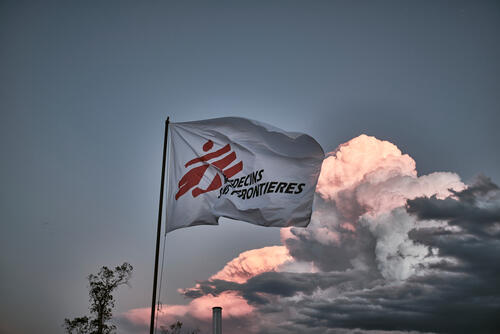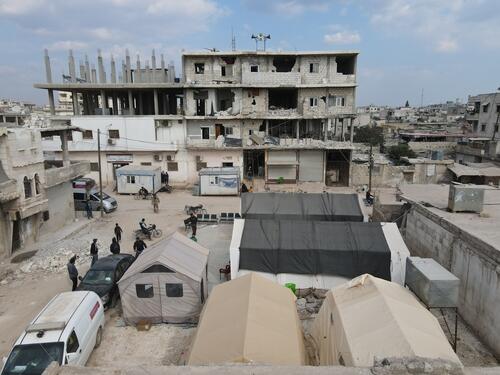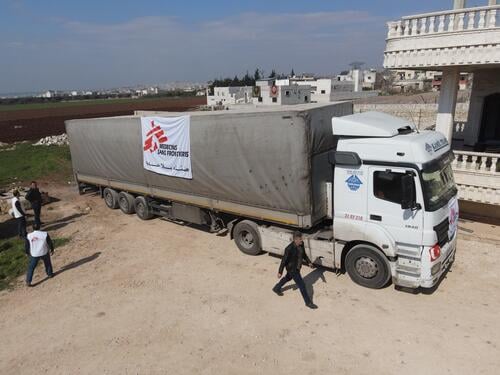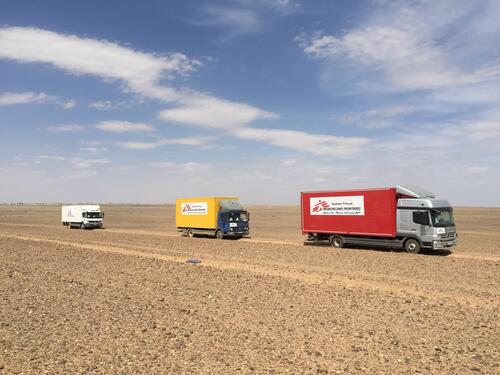A Médecins Sans Frontières (MSF) delegation and a cargo plane, containing 30,000 units of baby milk, 234 family tents and three surgical kits, arrived today in Damascus, as a donation to the Syrian Arab Red Crescent (SARC). This cargo, the second MSF donation to the SARC since the earthquakes of February 2023, aims to help with relief assistance to people affected by the earthquakes in areas where MSF does not currently have teams.
The MSF official delegation of Dr Ahmed Abdel-Rahman, MSF director of operations and Michiel Hofman, a senior humanitarian specialist, arrived in Damascus to discuss MSF’s willingness to provide medical and humanitarian support to people living in areas where MSF is not currently present. They aim to have talks with the SARC officials to discuss with the SARC ways through which MSF can provide additional medical assistance to more people throughout Syria.
“A few days after the earthquakes hit Syria and Türkiye, in addition to our emergency operations in northwest Syria, we offered our support to relief efforts in areas where we do not have teams,” says Dr Ahmed Abdel-Rahman, MSF director of operations. “In mid-February, we sent two trucks of medical and other essential items to assist people in the northern parts of the country where the SARC is operating, and this comes as an additional support.”
“As an independent and impartial medical organisation, we remain committed to providing humanitarian and medical assistance to the people in Syria, wherever access is granted, and the humanitarian principles are respected to ensure that aid reaches the people who need it most,” adds Dr Abdel-Rahman. The humanitarian situation in Syria was dire even before the earthquakes, ravaged by 12 years of war and multiple economic crises.
Since 6 February, we have scaled up our response in the areas of Syria that were most impacted by the earthquakes and where we have had teams for more than 10 years. This support has included direct medical assistance, distribution of relief items, water and sanitation activities as well as the provision of supplies.






